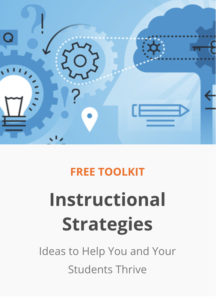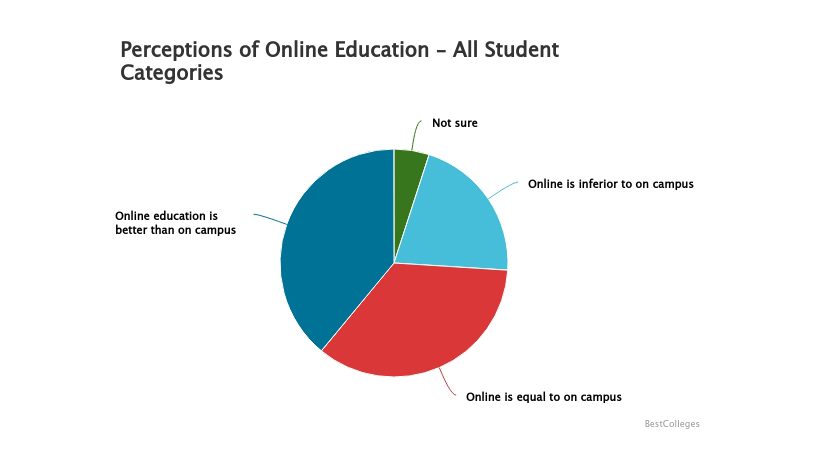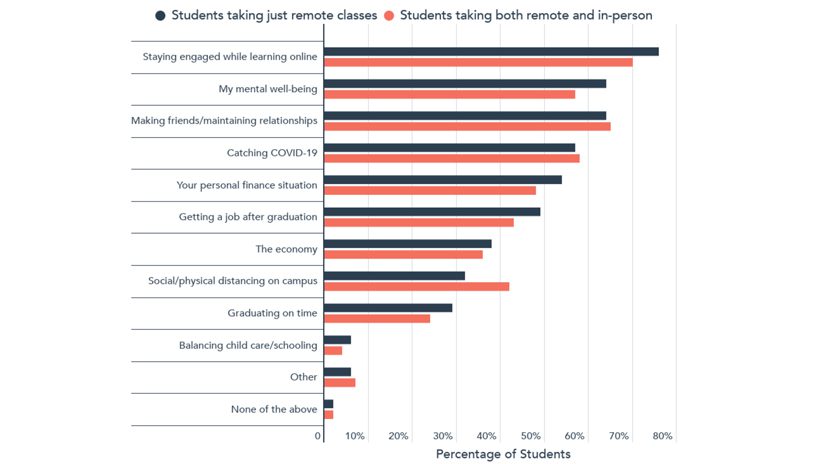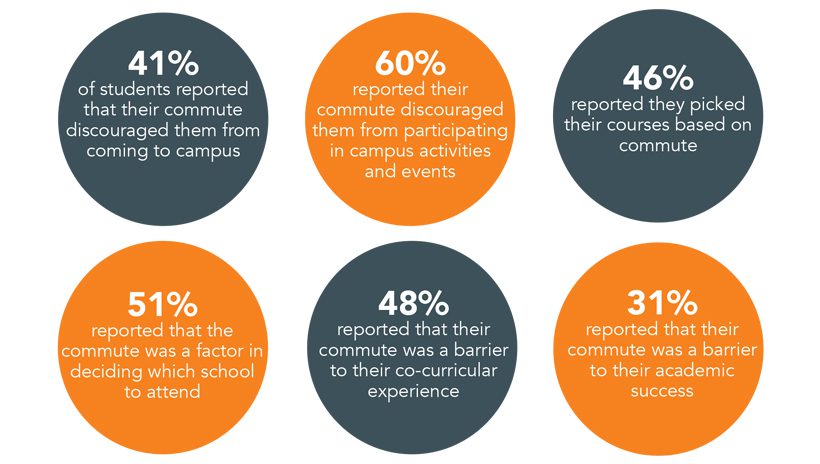Prior to the pandemic, online study was deemed inferior to the norm of learning in a classroom. While you might’ve completed the odd online workplace training course or distance learning for a master’s degree, the general consensus was that to get the most out of a learning experience, it had to take place in person.
So, whether you were in high school, college, or work, it was pretty much obligatory that you physically attend a learning space.
Everything changed once the pandemic hit and students were forced to learn from home. Many struggled to adapt to remote learning, particularly high schoolers from disadvantaged backgrounds. Reports of plummeting grades and growing disengagement highlighted the importance of a structured school environment and, in turn, implied the ineffectiveness of online learning.
However, this wasn’t the case for everyone. In fact, plenty of students thrived outside of their claustrophobic classrooms and noisy lecture halls. College students, in particular, embraced the key advantages to online learning, with many even calling for a hybrid learning approach post-pandemic.
So, should hybrid learning become the norm? Here are five honest, valid opinions from students on remote learning.
1. You Don’t Get the Same “Student Experience” with Remote Learning
“Learning remotely isn’t the same as the visceral experience of expressing and debating ideas in a physical space.”—Jesper Ryynänen, MSc student
From joining fraternities and sororities to holding all-night study group sessions in the library, the rich socialization that comes with being a student is, for many, a fundamental part of the college experience. A 2019 study reported that, for 60% of students, the social element of the campus environment was integral to their life experience, independence, and confidence.
Even just small, daily interactions—like chatting to coursemates before class, debating topics during a lecture, or popping in to discuss an assignment with a teacher—can feel essential for those who are motivated by the social aspect of learning.
It’s not surprising, then, that during the pandemic, many students were disappointed to be “robbed” of their college experience. This disappointment trickled into the motivation that they had for learning, resulting in a decline in their academic performance.
There are solutions available that aim to tackle the communication restrictions that come with remote learning. For example, the Gartner Magic Quadrant Leader for UCaaS provides students with a virtual contact center and multiple device connectivity. However, for social butterflies and passionate debaters, it fails to be a worthy replacement for a face-to-face learning environment.
2. Remote Learning Isn’t Easily Accessible for Disadvantaged Students
“I live in an area where internet access and WiFi are hard to get and, as a result, I’m not only stressed about school but I’m often anxious that I will not be able to join and maintain access to online classes and assignments.”—Kitty Stockton, student
 The pandemic thrust the digital divide into the spotlight when thousands of students were left unable to participate in their online classes. As of 2019, a significant handful of students didn’t have access to a reliable telephone service or WiFi connection. 18% of students couldn’t even access a computer, meaning that they lacked the basic equipment needed to combat the disruptive effect that COVID-19 would have on their education.
The pandemic thrust the digital divide into the spotlight when thousands of students were left unable to participate in their online classes. As of 2019, a significant handful of students didn’t have access to a reliable telephone service or WiFi connection. 18% of students couldn’t even access a computer, meaning that they lacked the basic equipment needed to combat the disruptive effect that COVID-19 would have on their education.
Finding high-quality HD video and audio conferencing equipment is just not possible for high schoolers from low-income families and students on tight budgets. What’s more is that even if students do possess the necessary equipment, they’re still vulnerable to technical mishaps and breakdowns, which adds an extra layer of stress to the remote learning process.
Fortunately, distance learning solutions for students who have restricted internet access have become much more available in recent months. WiFi hotspots, laptop loans, and the creation of offline content are all ways that colleges and communities are helping students to study remotely.
3. It Can Be a Struggle to Stay Engaged in Online Classes
“I just learn a lot better when I’m actually in front of the teacher.”—Cory Lewis, student
The struggle to stay present and focused during online classes is a prevalent concern amongst students, particularly those who rely on the interactivity of face-to-face communication to keep them engaged.
According to a 2020 survey on student wellness during COVID-19, 72% of students reported that staying engaged while learning remotely was their biggest concern during the pandemic. This was followed by worries regarding their mental health and maintaining friendships.
The lack of face-to-face interaction isn’t the only factor that disengages students from online learning. Even for those who prefer learning alone, the lack of boundary between their home and work environments can lead to restlessness, procrastination, and, of course, distraction.
Mobile phones are the biggest culprit, forever tempting students with social media notifications and text messages from friends, but a home is also filled with many distractions. Anything from video games to the fully stocked fridge downstairs is enough to divert attention from studying.
However, there are definitely things that can be done to facilitate productive online learning for those who want it. Website personalization software and integrative lessons can help with engagement levels, livening up what can often feel like a very monotonous and impersonal way of learning. Avoiding back-to-back online lessons is also a good procedure, as students report fatigue from staring at a computer for hours without breaks.
4. Remote Learning Can Help Students to Manage Disabilities
“I have ADHD, and I’ve been able to focus on my schoolwork so much better now that there’s not a constant commotion around me […] I don’t have to worry about people talking or other background noise.”—Jacob, student
Long before the pandemic, students with special physical and mental needs were calling for their schools and colleges to accommodate a blended learning curriculum. It was a request that until now remained unmet under the assumption that online learning lacked the fundamental capabilities of the physical classroom.
However, the pandemic has since opened educators’ eyes to a very interesting concept—that there are, in fact, a lot of students who positively thrive in remote learning environments.
Anxiety and depression have been rife amongst students for a very long time. A 2019 survey by the American College Health Association revealed that a worrying 60% of students were experiencing “overwhelming anxiety,” while 40% reported low-functioning depression. This mental health crisis can be attributed to many different factors, but the pressure, stress, and social obligations that come with college are thought to have a significant impact.
This perhaps explains why almost 2 out of 3 college students are deciding to continue on with remote learning post-pandemic. Online learning offers a respite from factors that aggravate mental health issues, allowing more time for self-care.
5. Remote Learning Is More Convenient and Flexible
“It was really difficult to go from class to my job, then back to class in a single day. It was a balancing act for me and so many other grad students. All of that bedlam, the constant stress of where I’m supposed to be, and when I’m supposed to be there, is all gone now.”—Nick, student
For students with part-time jobs, long commutes, and other commitments, the traditional classroom experience has been deemed “restrictive, inflexible, and impractical” for quite a long time. According to a StudentMoveTO study, 30% of students spend two hours or more commuting to college, and many report that commuting has a severely negative effect on their college experience and academic success.
Even for students without jobs or long commutes, it can be difficult to find time for independent study, extracurricular activities, hobbies, social pursuits, and self-care, not to mention fitting in three meals a day and eight hours of sleep at night.
Remote learning offers students a much greater degree of flexibility, allowing them the time and energy to pursue other interests.
Of course, not all students love the flexibility—at least, not once the honeymoon period ends. Many students report that remote learning made them crave routine, the lack of structure to their day making it harder for them to fight the urge to procrastinate. However, other students report that working at their own pace benefits their academic performance, increasing their self-discipline and self-motivation skills.
So, Is Hybrid Learning the Way Forward?
From cloud-based contact center solutions to digital collaboration tools, the pandemic has revolutionized the workplace by introducing solutions to facilitate a productive hybrid workforce.
The education sector is following suit, investing in integrative and engaging online materials and conferencing software. Teachers are also undertaking online RPA certification to streamline online learning tasks like attendance management, class scheduling, and progress tracking in order to deliver a smooth learning experience for all.
With 67% of colleges planning to preserve or extend their remote learning options, it seems likely that students will have more flexibility in how they choose to learn for the foreseeable future.
See also:
- Infographic: 5 Instructional Strategies to Keep Students Engaged in Virtual Classrooms
- 8 Key Advantages of Online Learning
- 9 Lifesaving Remote Learning Tips for Students
- Teaching Virtually as a School Media Specialist: Interview with Eboni Henry
- Webinar: SLJ Webcast: Flipped Classrooms (and Other Online Learning Tools!) in a Flipped World






